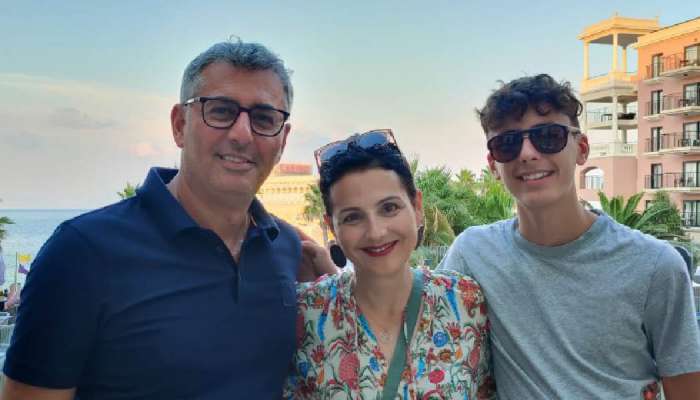
Anyone facing a medical challenge experiences many difficulties - and the journey that patients, families and even healthcare providers go through is not just physical, but emotional. To help those affected by illness or surgery, internationally renowned heart surgeon Dr. Ehsan Natour draws from years of experience in his book, "When Life Comes to a Standstill: The Surgeon Who Touches the Hearts of His Patients."
"My book is a step-by-step guide," says Natour. "It takes the reader through what happens if you become a patient needing heart surgery - from diagnosis to the operation to rehab. It is intended as a companion for these patients, and for their relatives and friends who will be their support team during illness and recovery."
Natour offers practical advice for patients, family and healthcare professionals for coping with any kind of trauma, including these tips.
1. For patients
After any serious illness or surgery, you will discover things are not as they once were, and recovery may not be quick, easy - or complete. But you may discover benefits, like a slower pace of life or increased ability to appreciate the moment.
* Prepare to adapt to a new normal. "You will find a new normal more quickly if you don't try to hold on to the old one," advises Natour. "There is a better and much healthier way: to adapt courageously and flexibly to the challenges of the new situation."
* Embrace your life now. "I remember numerous executives, people who identified with their work completely and learned from their illness that there is a life outside their job," writes Natour. "If you have mastered a crisis, you have achieved something big. You have a future again, even if it may look different from what you imagined."
* Accept help. Many have difficulty accepting support, but don't be afraid of asking for help from family members, friends, support groups and/or therapists.
2. For family
Helping a loved one through a medical crisis or illness is also hard on family and friends. With those not used to seeing their loved one incapacitated, the sudden role change can be jarring, causing many to push the patient to "get better" too quickly.
Here's how you can help:
* Reduce stress. Natour says it's important to help your loved one be "bubble-wrapped in a stress-free space."
* Stay connected. "What we need most during a crisis is closeness to others," observes Natour.
* Be their advocate. Someone coping with a difficult diagnosis may not process information well. Attend appointments with them, take notes and ask questions.
3. For healthcare providers
A major goal for Natour is to foster better doctor-patient relationships. Unfortunately, the modern healthcare system allows doctors minimal time with patients, but taking time to build a sense of trust makes a huge difference for all concerned.
"When you talk with someone you get to know each other, and this may lead to a better diagnosis," says Natour. "The more relaxed patients are, the better they feel, and the more trust they have in their medical environment, the greater are their chances of healing."
To create better relationships with patients as they confront illness or surgery, focus on:
* Making a connection. Beyond explaining information clearly, encourage patients to ask questions. "In my opinion, good communication is one of the most important tasks of a doctor - but it is the most difficult for many," Natour explains. "Some young health professionals are not even aware that good contact with their patients is an essential tool of their profession."
* Listening. For effective communication, listening is even more important than talking. "Listening is hard work; one must attend to the patient thoroughly," writes Natour. "To listen to a patient means that in this moment they are the most important thing."
To further support those affected by any sort of crisis or trauma, including for medical professionals, Natour has also founded Stichting Stilgezet, an organization in the Netherlands working closely with scientific research to understand the emotional and social context of this significant phase of life.
"This is why I became a doctor: to heal human beings, not just sections of them," explains Natour. "As medical professionals, we can shape the encounters with our patients. We will experience that the good that we do will come back to us." -BPT